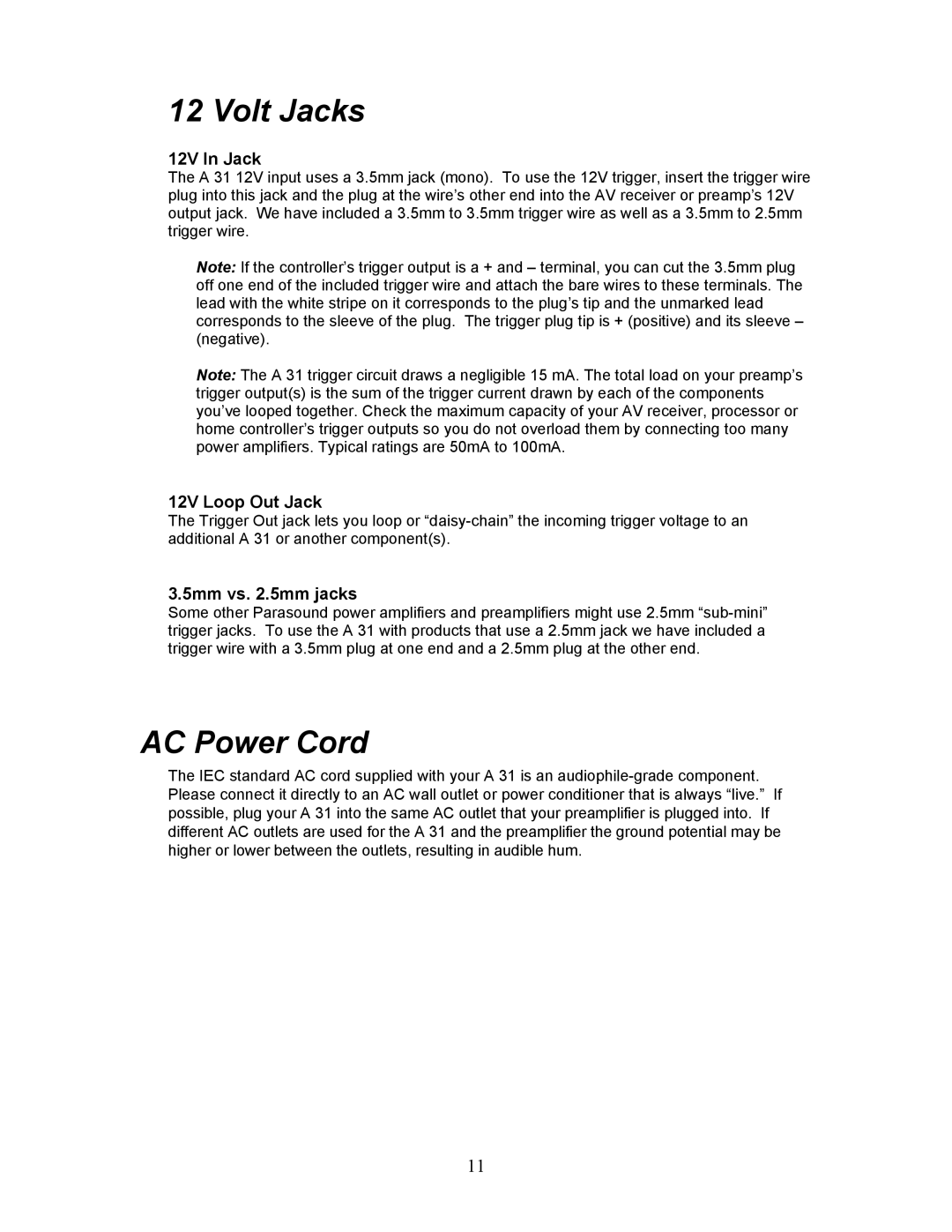12 Volt Jacks
12V In Jack
The A 31 12V input uses a 3.5mm jack (mono). To use the 12V trigger, insert the trigger wire plug into this jack and the plug at the wire’s other end into the AV receiver or preamp’s 12V output jack. We have included a 3.5mm to 3.5mm trigger wire as well as a 3.5mm to 2.5mm trigger wire.
Note: If the controller’s trigger output is a + and – terminal, you can cut the 3.5mm plug off one end of the included trigger wire and attach the bare wires to these terminals. The lead with the white stripe on it corresponds to the plug’s tip and the unmarked lead corresponds to the sleeve of the plug. The trigger plug tip is + (positive) and its sleeve – (negative).
Note: The A 31 trigger circuit draws a negligible 15 mA. The total load on your preamp’s trigger output(s) is the sum of the trigger current drawn by each of the components you’ve looped together. Check the maximum capacity of your AV receiver, processor or home controller’s trigger outputs so you do not overload them by connecting too many power amplifiers. Typical ratings are 50mA to 100mA.
12V Loop Out Jack
The Trigger Out jack lets you loop or
3.5mm vs. 2.5mm jacks
Some other Parasound power amplifiers and preamplifiers might use 2.5mm
AC Power Cord
The IEC standard AC cord supplied with your A 31 is an
11
